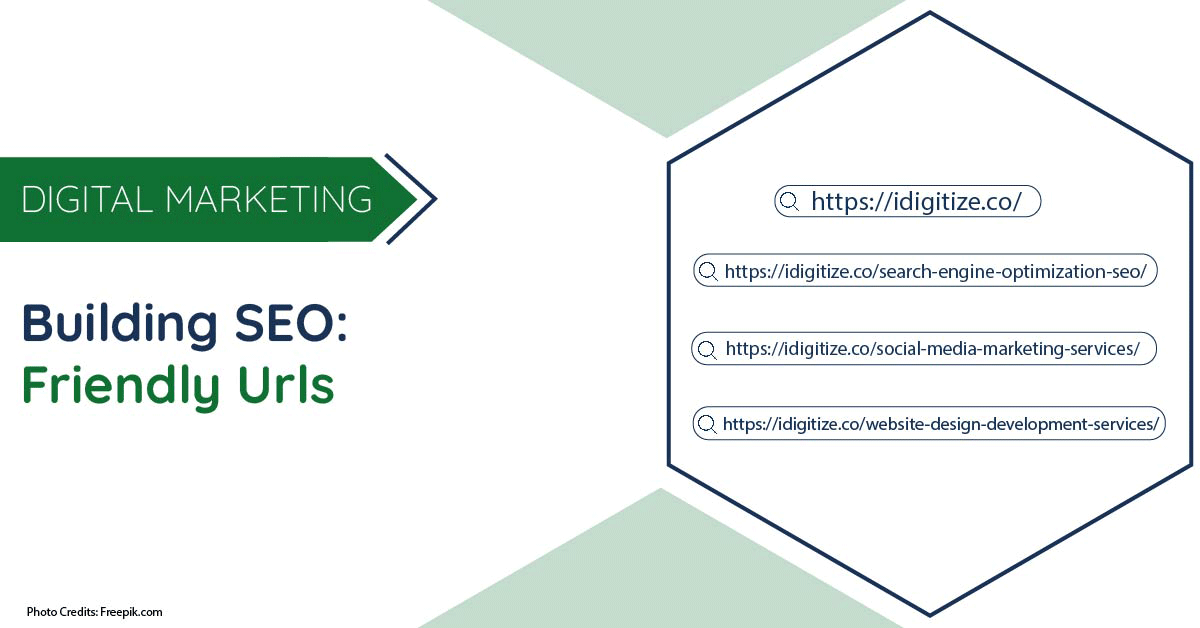BE SEEN, GET CONNECTED, GO VIRAL!


Contact
+91 8591174212Let's work together to bring your products and services to new digital heights!
Get in Touch

Oct 30, 2023

“http://info.cern.ch/hypertext/WWW/TheProject.html” was the first website to go live created by Tim Berners-Lee. His invention of the URL, HTTP (Hypertext Transfer Protocol), and HTML (Hypertext Markup Language) pioneered the modern internet, enabling global information sharing and access
In the ever-evolving world of digital marketing, search engine optimization plays a pivotal role in ensuring your website stands out from the crowd. When it comes to search engine optimization, many aspects need to be considered, and optimizing your page URLs is one of the often overlooked yet crucial elements. In this blog, we will dive deep into the best SEO practices for optimizing page URLs to enhance your website’s visibility and user experience.
1. Begin with a Solid Foundation:
Creating an SEO-friendly URL is like constructing a sturdy foundation for your house; it’s essential. Here’s how to do it right:
•Keep it concise and relevant: A URL should be a snapshot of your content. Avoid long, puzzling URLs, and use plain and simple language that accurately mirrors the content’s topic.
•Avoid vague placeholders: Instead of generic placeholders like “page1” or “article123,” strive to make your URLs specific and descriptive.
•Refrain from using Numbers: It is advisable to not use any numerics in the URL as you will have to redirect to a new URL every time the number in the content changes.
2. Incorporate Keywords Strategically:
Keywords are the main characters of SEO, and they play a significant role in URL optimization
•Choose a primary keyword: Select a keyword that’s relevant to your content, and consider using tools like Google Keyword Planner to identify the most appropriate keyword.
•Place keywords strategically: Ideally, the placement of your primary keyword should be near the beginning of the URL. However, keep in mind that the URL must have a natural flow and doesn’t appear forced or keyword-stuffed.
3. Hyphens Over Underscores:
When it comes to separating words in your URL, the choice of characters matters.Hyphens (-) are more readable than underscores (_) and spaces, ensuring that search engines and users can clearly anticipate word separation in your URLs.
4. Short and Sweet:
Short URLs are not only more user-friendly but are also preferred by search engines:
•Memorable and shareable: Short URLs are easier for users to remember and share on social media platforms.
•Clarity and focus: Concise URLs often indicate a clear and focused topic, a characteristic that search engines favor.
5. Avoid Special Characters:
Special characters in URLs can lead to confusion and hinder SEO efforts. Avoid using special characters such as ampersands, question marks, or percentage signs in your URLs, as they can create issues for search engines and users alike.
6. Secure with HTTPS:
Security plays a dual role in websites, ensuring trust and supporting SEO. Websites with secure connections (HTTPS) are prioritized by search engines. Ensure that your URLs begin with “https://” for a safer and more trusted browsing experience.
7. Sidestep Duplicate Content Issues:
Duplicate content can negatively impact your SEO rankings, but can be managed effectively:
•Unique URLs for unique content: Ensure that each page has a unique URL to prevent duplicate content issues.
•Canonical tags: When duplicate content is unavoidable, use canonical tags to specify the preferred version of the page.
8. Updating URLs for Evolving Content:
Content is dynamic, and when it changes, your URLs should adapt too. When your content evolves significantly, don’t forget to update the URL to maintain consistency and relevance.
9. User-Friendly URL Structure:
A well-structured URL hierarchy improves user experience and helps search engines understand your site’s organization. Organize your URLs logically, incorporating categories and subcategories to enhance navigation and user understanding.
10. Mobile Optimization Matters:
The rise of mobile users is making mobile optimization a crucial consideration for your URLs. Mobile-optimized URLs contribute to a better user experience and can positively affect your SEO rankings.
11. The Power of 301 Redirects:
When URLs change or pages move, 301 redirects are your best friends. Implementing 301 redirects to direct users and search engines to the new URL, protecting your SEO equity and preventing broken links.
Winding up
In the intricacies of SEO, the optimization of page URLs may seem like a mere thread, but it holds the potential to weave a compelling narrative of online success. The practices outlined here are your map to navigate the ever-changing digital landscape. Now, it’s time to put this knowledge into action. Start by applying these best SEO practices to your own website. Explore the best digital marketing company in Mumbai for a full range of digital marketing services. Whether it’s optimizing URLs, refining content, or boosting your website’s search engine rankings, we’re here to help you achieve your digital marketing goals. Your journey to SEO success begins now!
BE SEEN, GET CONNECTED, GO VIRAL!
Let’s build a smarter, more connected future for your business. Get in touch with us today!

Office Address
6th Floor, Office Number 603, Ashok Premises, Old Nagardas Crossroad, Opposite Saraswati Towers, Andheri East, Mumbai, Maharashtra 400069
info@idigitize.co
Contact
@ 2024, iDigitize I All Rights Reserved I Designed, Developed & Managed By iDigitize Infotech LLP